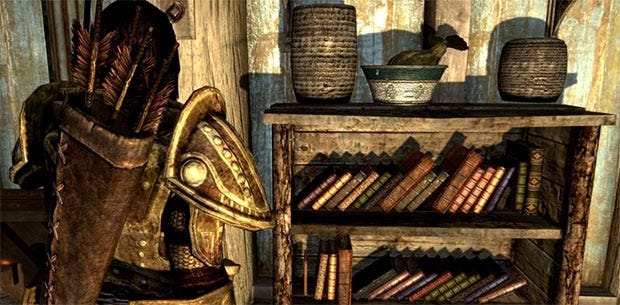The Best Games Based On Books
From page to PC screen
Books! They're like films without pictures, or games that are all cutscene. Old people and hipsters really like them, teenagers think they're like totally lame, and quite frankly we should all read more of them. There are countless games inspired by books - most especially Tolkien, Lovecraft and early Dungeons & Dragon fiction - but surprisingly few games based directly on books. Even fewer good ones.
Perhaps one of the reasons for that is that a game can, in theory, cleave closer to what a book does than a film can - with their length and their word counts, their dozens of characters and in some cases even their own in-game books, they can to some degree do the job of a novel. They don't need to be based on books - and often they can do so much more, thanks to the great promise of non-linearity. Of course, the real reason for the dearth is that novels are so rarely the massive business a movie is these days. You might get a forlorn Hunger Games tie-in here and there, but suited people in gleaming office blocks just aren't going to commission an adaptation of the latest Magnus Mills tale, more's the pity.
I suspect that, over time, we'll see the non-corporate side of games development increasingly homage the written word, but for now, these ten games (and seven honourable mentions) are, as far as I'm concerned, the best, and most landmark, results of page-to-pixel adaptation to date.
The best video games based on books
- Call of Cthulhu: Dark Corners Of The Earth
- Metro Exodus
- Tom Clancy's Rainbow Six Siege
- Enslaved: Odyssey To The West
- The Witcher 3: Wild Hunt
- S.T.A.L.K.E.R.: Shadow of Chernobyl
- World War Z Aftermath
- Conan Exiles
- BioShock
- The Binding Of Isaac: Rebirth
Call of Cthulhu: Dark Corners Of The Earth
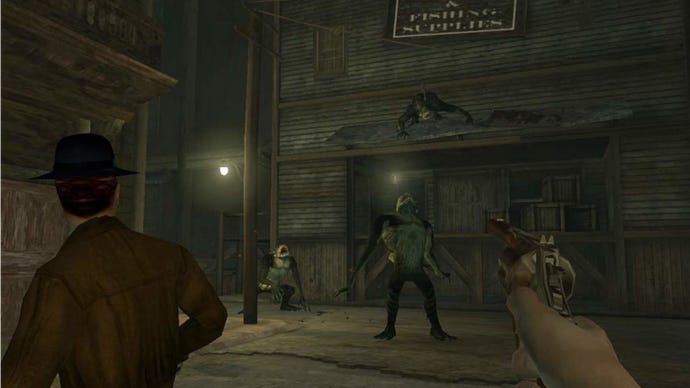
Given quite how many games cite Lovecraft as an inspiration, there are surprisingly few which go directly to his original tales. Most settle for elder gods and other-dimensional tentacle-beasts, and perhaps a spot of pseudo-Victorian mysticism. Dark Corners Of The Earth works hard to provide more than Cthulhian lip-service, weaving in and out of several Lovecraft tales, particularly Shadow Over Innsmouth, replete with both mystery and a rare dedication to making the protagonist weak and fearful.
Lovecraft's tales were not about supermen fighting monsters, but about terrified mortals being destroyed by things beyond all imagining. Of course, the second you show something on-screen it becomes entirely imaginable, but standard sacks full of hitpoints they generally are not. Investigation, exploration and mounting terror are Dark Corners' major concerns, but overarching all of this is a sanity system, your grip on reality loosening as you encounter terrible things. It does become a first-person shooter to some degree, but a very dialled down, more realistic one in which every single bullet counts, to the point that firing at the wrong time/entity can be deadly. Uneven and often expasperating, but it's both directly based on Lovecraft and, I think, the closest game in spirit to his tales.
Two planned sequels never came to pass; a great shame, as Dark Corners looked rather dated even at the time, and it would have been lovely to have a crack at more modern-looking follow-up.
Where can I buy it: Steam, GOG.
Metro Exodus
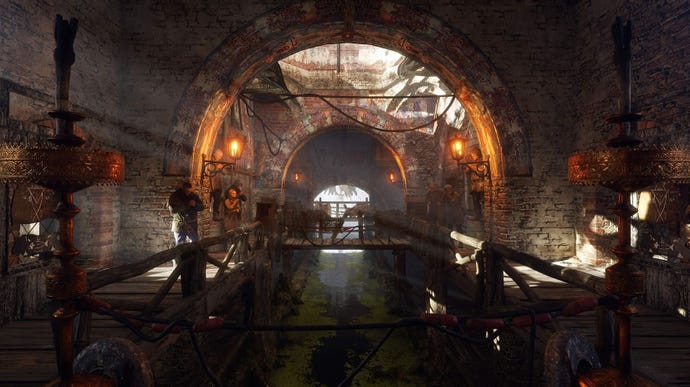
Like The Witcher, the two Metro games are based upon Eastern novels which never quite crossed over here, in this case Russian author Dmitry Glukhovsky's 2005 post-apocalypse tale Metro 2033 and Metro: Last Light. There are close similarities to STALKER - Russia and the Ukraine seem to have their end-of-the-world tropes just as America does - but both book and game spend a lot more time exploring post-society society than the rival series. In the aftermath of nuclear horror, what remains of Moscow's population has retreated into the subway system below the city, where they eke out a subsistence lifestyle and try not to fall into factional war. Supernatural elements and mutant wildlife make matters harder, too.
Metro Exodus essentially follows the plot of the source book: the setting and lavish treatment is very much the game's enduring appeal. As first-person shooters, their many interesting ideas don't always coalesce, and they can irritate, but amid so many games about soldiers mowing down infinite other soldiers, their strangeness and alternate perspective feels vital.
Where can I buy it: Steam, GOG, Humble.
Tom Clancy's Rainbow Six Siege
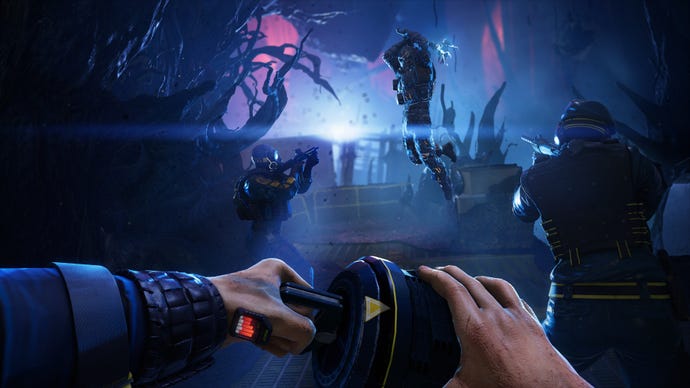
Tom Clancy's 1998 counter-terrorism novel Rainbow Six directly spawned an ongoing series of tactical shooters, and we're now over 20 games deep in the R6 universe. Opinions vary wildly about which is the 'best' Rainbow Six game, but 2015's Rainbow Six Siege takes the gold for us - at least until Rainbow Six Extraction comes out next year. The R6 Vegas games are also strong contenders, but Siege's countless updates over the years have turned it into a stand-out multiplayer game, full of fast-paced action and tactical decisions.
Like other Counter-Strike-esque shooters, there's an attacking team and a defensive team, planting and defusing bombs, or wrestling hostages away from the opposing side. The key difference, though, is Siege's character classes, which all bring different abilities to the table to help your side gain the upper hand. It's pretty far removed from the original book, admittedly, but its themes of counter-terrorism and hi-tech gadgets are still there in full force.
Where can I buy it: Steam, Humble.
Enslaved: Odyssey To The West
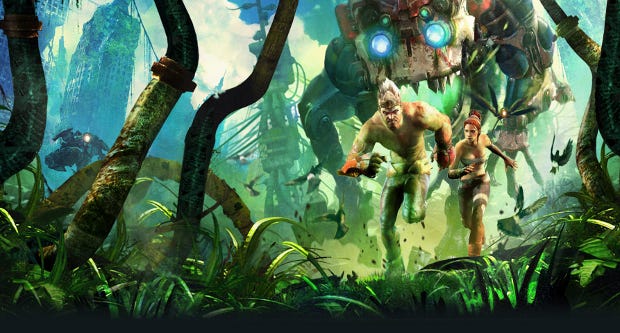
A reimagining of 16th Century Chinese novel Journey To The West, which you may know as Arthur Wayley's translation Monkey (or more likely its more playful 70s TV adaptation of the same name, so beloved of students in the 1990s). Enslaved moves the setting from a fantastical, folk tale-inspired China to a post-apocalyptic sci-fi setting, and is a punchy action game which enraptured those who played it - which sadly wasn't all that many. Clearly the settings and plot details diverge enormously from the book, but many of the characters are shared.
Andy Serkis did motion capture and Alex Garland (The Beach, 28 Days Later) wrote, and it was particularly delightful in its appearance and oddness (its beauty very much at odds with what we usually expect from the post-apocalypse), which more than made up for the relatively simple game it was at heart. We shan't see its like in the mainstream again for quite some time, I imagine.
Where can I buy it: Steam, Humble.
The Witcher 3: Wild Hunt
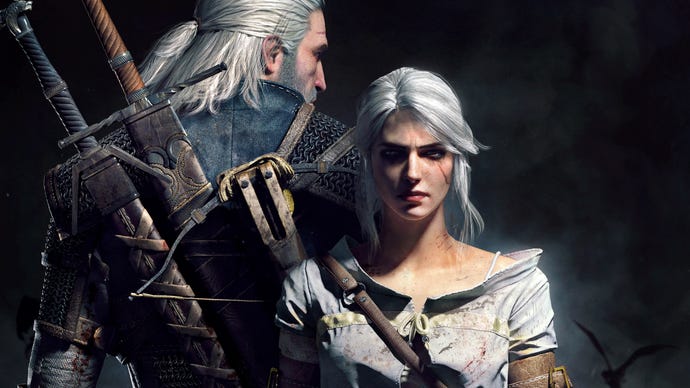
Unlike most everything else on this list, the novels which the three Witcher roleplaying games are heavily based upon were barely known in the West until digital Geralt swaggered onto our screens and tried to hump our keyboards. Polish author Andrzej Sapkowski published five domestically successful fantasy novels during the 90s, and though three of them have recently been translated into English, I rather suspect they still haven’t made much of a dent outside of the core fanbase even now. To most minds the games are very much the definitive Witcher.
All the key components and characters we’ve come to love/roll our eyes at in the games are there though, from emotionally-neutered, bed-hopping monster hunter Geralt himself to his destiny-swaddled protégé Ciri and the sprawling politics of The Continent. The games have improved exponentially as the series wore in, with more sandboxy yet focused third game The Wild Hunt very much the high point. If you’re in this for the plot and politicking above and beyond the monster-bashing, however, you almost certainly need to play – or read – the entire saga.
Where can I buy it: Steam, GOG, Humble.
S.T.A.L.K.E.R.: Shadow of Chernobyl
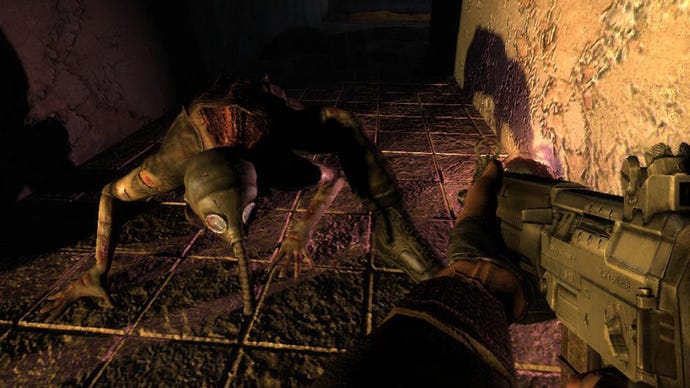
Roadside Picnic, the 1972 Russian sci-fi novel which inspired the STALKER games, has been oddly resistant to direct adaptation. Tarkovsky’s wonderful, transcendentally reflective movie Stalker uses the broader ideas as a launching point for an exploration of human idealism and aspiration, but leaves most of the science fiction behind. The three S.T.A.L.K.E.R. first-person sandbox shooters, by contrast, abandon almost all character work in favour of expanding the sci-fi and the post-disaster theme, and then deftly blending them into a real-world location.
Both book and film pre-dated the Chernobyl meltdown, but the Zone, the eerily beautiful ruin left in its wake, was both an uncanny predication of the disaster and about as perfect a setting for a game about surviving in a strange and mysterious place as we’ve ever had. First game Shadow of Chernobyl is the closest of the trilogy to Roadside Picnic’s plot, and perhaps also to the pervasive loneliness and distrust of the 1979 movie.
Where can I buy it: Steam, GOG, Humble.
World War Z Aftermath
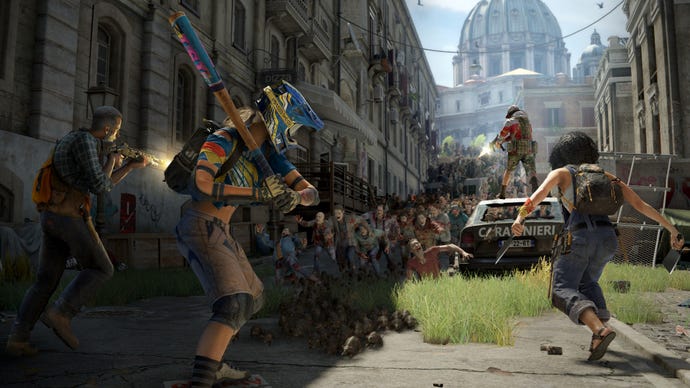
The World War Z universe is a bit of a rabbit hole - the book, game, and film are all intrinsically linked together. But the original source for all of it was the pivotal novel, World War Z: An Oral History of the Zombie War by Max Brooks.
Aftermath takes place in 2024, following on from the original disastrous events of the book. Taking the form of a co-op shooter, the game offers up several different zombie types for you to use as target practice while you work towards recapturing the tortured Vatican City in Rome. Admittedly, the book and film don’t visit these locations, but Aftermath shows us how big the zomb-ocalypse really was. Sadly, there is no Brad Pitt cameo here, despite the inspirations from the film.
Where can I buy it: Steam, Epic, Humble.
Conan Exiles
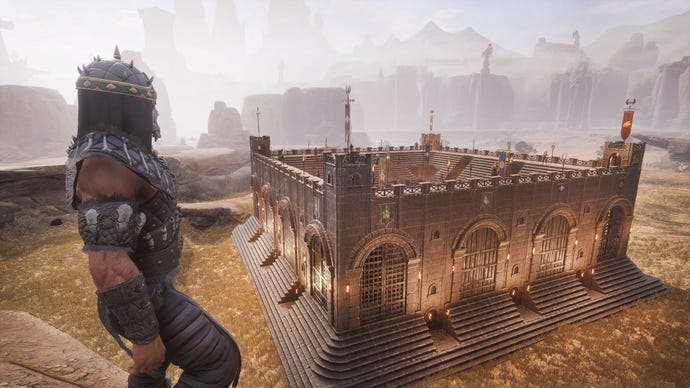
Exiles is set in the world of Conan The Barbarian - the long standing sword-swinging hero who originated from Robert E. Howard’s creation in Weird Tales magazine and has appeared in everything from books, films, comics, board games and more since. In Conan Exiles, Conan serves as a rescuer for the player character, setting them free to then build - literally - a life of their own.
You’ll spend most of your time crafting, and building, but being an online multiplayer game, this does mean that you’re at the mercy of other players and their whims, so that base may be immediately destroyed. Fear not, though, as there's also a great single player mode for when other people have crawled under your skin one too many times. No matter which mode you choose, the game is a raucously fun time. The rich environment, expansive world and endless exploration are what makes Exiles a smashing addition to this list.
Where can I buy it: Steam, Humble.
BioShock
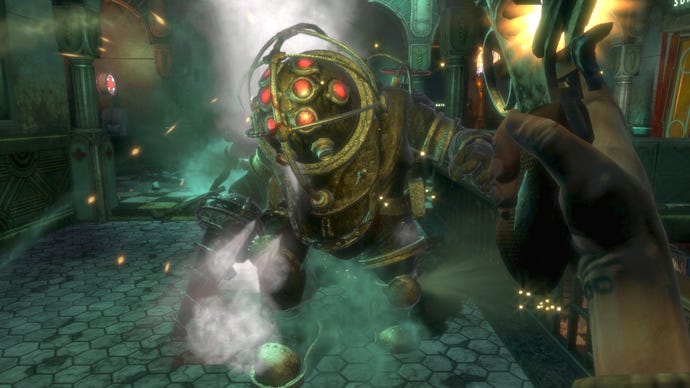
Irrational's art deco shooter was inspired by the writings, and repudiations, of controversial novelist and philosopher Ayn Rand. In particular, names and themes from her novel Atlas Shrugged are used liberally throughout.
BioShock is more a discussion of ideas than an attempt to digitally recreate the world of a novel, and its own story very much becomes its own story (and eventually even more so, in the wake of BioShock: Infinite). But in the broader category of literary- or philosophy-inspired mainstream games, BioShock is somewhere very near the top.
Where can I buy it: Steam, GOG, Humble.
The Binding Of Isaac: Rebirth
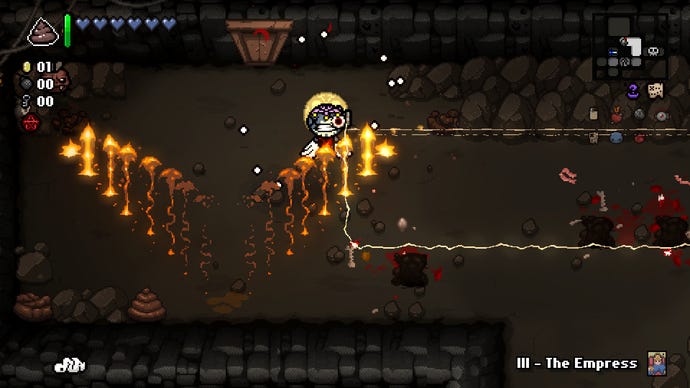
It's based upon the Bible, the title referring to the tale of Abraham (perhaps the Old Testament's most overt statement that God was initially a right old bastard), but the absurdly popular roguelike/twin-stick shooter is more about what fervent religious belief can do to someone than it is recreating Christian tales.
Given there's something of a dearth of religious discussion in games, its Catholic guilt and anger is fascinating, however, though the exploration is arguably subsumed by all the poo-shooting and obsessive completism.
Where can I buy it: Steam, Humble.
